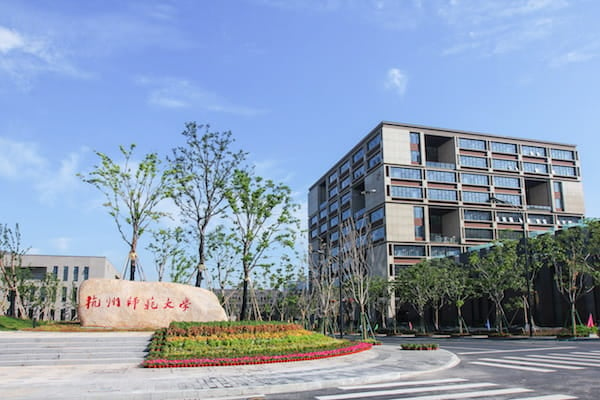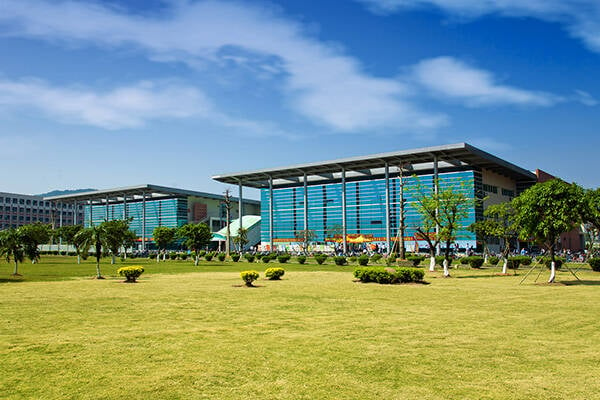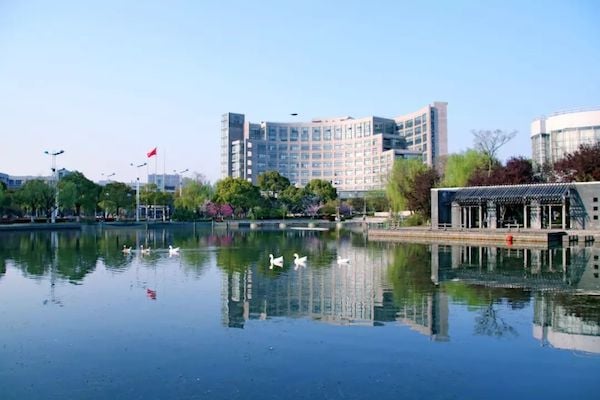
Guizhou University
![]()
Introduction to Guizhou University
Guizhou University (GZU), originally established in 1902, was first known as Guizhou Institute of Higher Learning. Other names have included, Provincial Guizhou University, National Guizhou College of Agriculture and Engineering, and National Guizhou University. The name “Guizhou University” was formally adopted in October 1950. In November 1951, Chairman Mao Zedong inscribed the name for ‘Guizhou University’. In August 1997, it merged with Guizhou Agricultural College and some other institutions. In August 2004, it merged with Guizhou University of Technology. In December 2004, it became one of the higher institutions partially funded by the Ministry of Education and the Guizhou Provincial People’s Government. In September 2005, it was listed as one of China’s ‘211 Project’ universities. In September 2012, it was recognized as one of the 14 universities in the “Midwest Universities Comprehensive Strength Promotion Project”. In April 2016, it was listed as a national-level key sponsored university in the “One Province, One School” project in the Midwest of China. In September 2017, GZU was included in the national “Double First-Class” Initiative to develop world-class disciplines. In November 2017, the university was awarded its first “National Civilized Campus” title. In February 2018, GZU became a higher institution that is to be jointly developed via ministerial-provincial cooperation.
The University covers an area of 362.22 hectare. Its library has a collection of more than 3.68 million paper documents, including more than 2.1 million Chinese and foreign electronic books. The University offers a wide range of courses for 12 major disciplines such as literature, history, philosophy, science, engineering, agronomy, medicine, economics, management, law, education, and art. GZU has 40 colleges, with 33,604 full-time undergraduate students (including 16,888 students from the two independent colleges) and 12,433 graduate students. It is home to 3,938 faculty members, including 2,856 full-time teachers. Of these, 503 are professors and 979 are associate professors. A total of 968 teachers hold doctoral degrees and 978 master’s degrees.
Guizhou University boasts two academicians of the Chinese Academy of Engineering, two distinguished professors (part-time) of the “Changjiang Scholars Award Program” of the Ministry of Education, one young scholar of the “Changjiang Scholars Award Program” of the Ministry of Education, six leading researchers of the national “Ten Thousand Talent Program”,two Renowned Cultural Specialists of the Publicity Department of the Central Committee of the CPC & “Four Batches of Talents” Program、one member in the Discipline Appraisal Group of the State Council’s Academic Degree Committee of China, five national-level young and middle-aged experts with Outstanding Contributions, six candidates selected for the national “100 million Talent Project” in the new century, 17 members of Higher education Steering Committee of Ministry of Education, 12 ‘Excellent Scientific and Technological Talents in the New Century’ of the Ministry of Education, 11 prominent experts in Guizhou, and 43 provincial experts in Guizhou. In addition, one faculty member has been ranked as one of the “Highly Cited Researchers” in the world for three consecutive years, and two have been on the shortlist of Elsevier “China Highly Cited Scholars” for four consecutive years.
Guizhou University has one discipline selected for China’s “Double First Class” Initiative, one national-level key discipline, nine national first-class disciplines, seven regional first-class discipline, and 23 provincial-level key disciplines. Currently, there are 17 first-level discipline doctoral programs, 49 first-level master’s degree programs, and 17 professional master’s degree programs. There are one National Engineering Technology Research Center (co-construction), one National Key Laboratory Cultivation Base, five centers for National and Local Joint Engineering Research (engineering laboratories), one National New Rural Development Research Institute, six Key Experimental Laboratory of the Ministry of Education (centers), two innovation teams affiliated with the Ministry of Education, one science and technology innovation team affiliated with the Ministry of Land and Resources, eight postdoctoral research stations, nine provincial collaborative innovation centers, 19 national teaching bases and demonstration sites, two national-level research and innovation bases in the talent training model, and 10 provincial humanities and social science research and demonstration bases.
Guizhou University has a passion and commitment to help improve the economic and social development of Guizhou in an all-round way, committed to cultivating and developing distinctive disciplines. In recent years, some specialty colleges have sprung up such as the College of Pharmaceutical Sciences, the College of Tourism and Cultural Industry, the College of Brewing and Food Engineering, the College of Big Data and Information Engineering, the College of Tobacco Science, the College of Medical Sciences, and the College of Tea. Other newly-established institutes with special concentrations include: ASEAN Research Institute, Yangming Cultural Research Institute, Changzheng Culture Research Institute, China Western Development Capability Research Center, Innovation Driven Development Strategy Research Institute, Guizhou Big Data Academy, and Provincial Key Laboratory of Public Big Data. Among them, the Research Center for Western China’s Development Capability was selected to be a part of China’s core think-tank.
Thanks to the counterpart support program, GZU has established partnership with Zhejiang University. It has also signed collaborative agreements with a number of universities across the country such as Xi’an Jiaotong University, Sichuan University, Tianjin University, Harbin Institute of Technology, Central South University, Beijing University of Posts and Telecommunications, Jiangnan University, Guangxi University, and Guangzhou Medical University. Noticeably, GZU, acting as the secretary-general of the “9+1” University Collaborative Alliance in Guizhou Province, has always been committed to boosting Guizhou’s development in higher education through active engagement. Additionally, GZU has been working in a collaborative manner with people’s governmental administrations across nine municipal cities (prefectures) in the province and more than 20 counties (districts). It has signed agreements with more than 200 enterprises including Maotai Group, Wengfu Group, Guizhou Branch of the Aluminum Corp of China (Chinalco), and Guizhou Branch of China Tobacco Corporation. Additionally, GZU is keen to step up scientific and technological cooperation, implementing action plans such as “Building Villages via Doctoral Science and Technology”, ‘Three Areas’ Science and Technology Talents’, “Professors and Doctoral Scholars Helping Enterprises” and “Thousands and Millions of Science and Technology Special Commissioner System Project” in Guizhou Province. Furthermore, the University has invested great effort in fostering collaborations between universities and regions, academia and industry, in a bid to upgrade cooperation to a new level; aiming to address extreme poverty alleviation while boosting regional socioeconomic development.
Guizhou University, committed to international exchanges and collaborative education, has established long-standing relationships for exchanges and cooperation with more than 150 universities or research institutions across more than 40 countries and regions. It has been approved to be the International Education Aid Base by the Ministry of Education (MOE), International Science & Technology Cooperation Base under the Ministry of Science and Technology, the institution offering Chinese Government Scholarship, and the institution offering Confucius Institute Scholarship. GZU has two Confucius Institutes, one co-built with the Presbyterian College in the United States, and the other co-founded with the University of the Gambia. Furthermore, the University has been actively engaged in international associations such as the IAUP (International Association of University Presidents), AUAP (Association of Universities of Asia and the Pacific), and EPU (Eurasia-Pacific Uninet). Since 2008, GZU has hosted and co-organized “China-ASEAN Education Cooperation Week” together with other related activities for 11 consecutive years.
Looking to the future, the University, bearing in mind the motto of “Illustrious Virtue, Utmost Goodness, Extensive Learning and Earnest Practice”, has been dedicated to fostering people-centered education. Taking into consideration Guizhou’s situation while promoting local development, it aims to build a high-level comprehensive university which can highlight regional characteristics and also make an impact across priority areas both at home and abroad. Furthermore, it strives to make a greater difference in building a moderately prosperous Guizhou, which is to develop simultaneously with other regions in China.
![]() Campus
Campus
Video
Welcome to Guizhou University
Campus Views
![]() Teaching Program
Teaching Program
![]() ISAC University Teaching Program
ISAC University Teaching Program
![]() Related Universities
Related Universities








